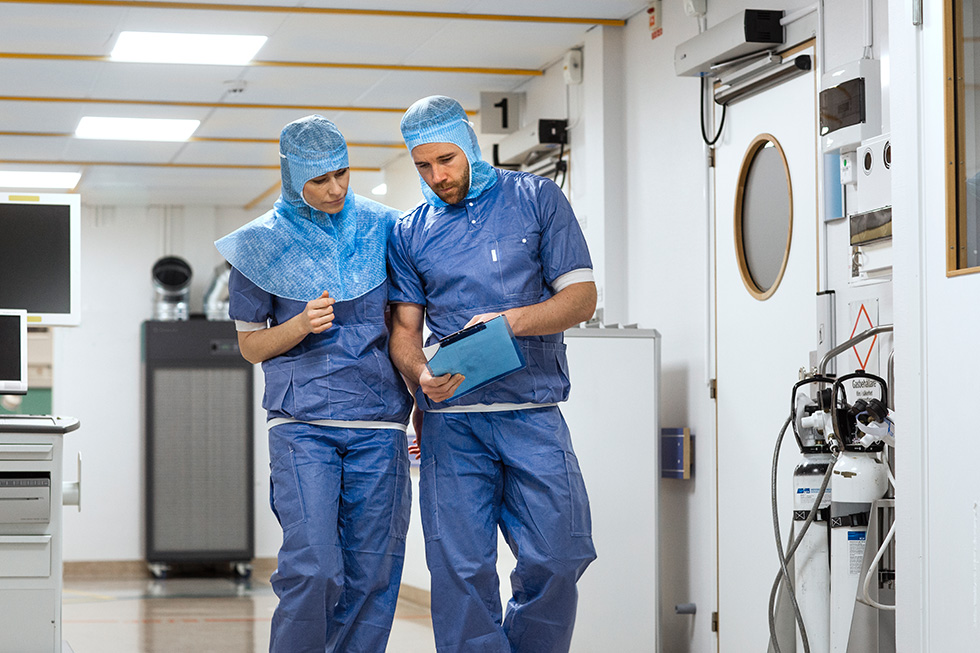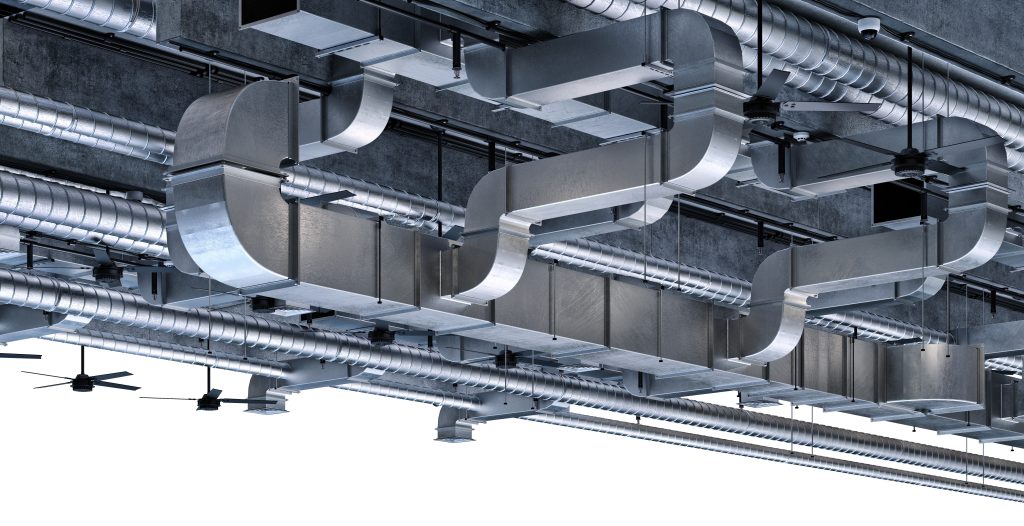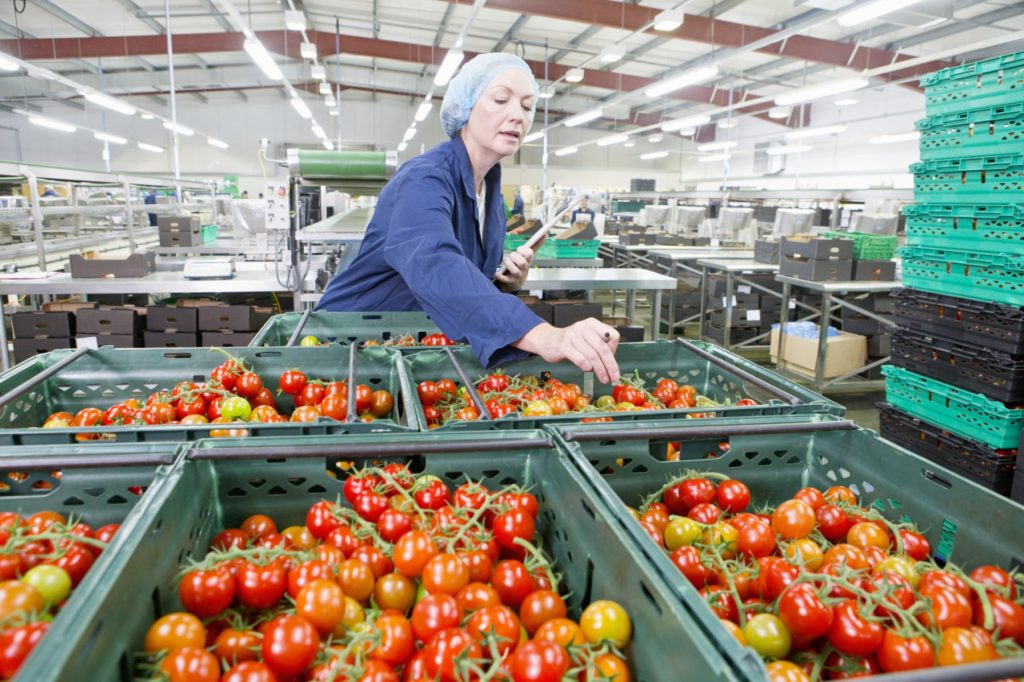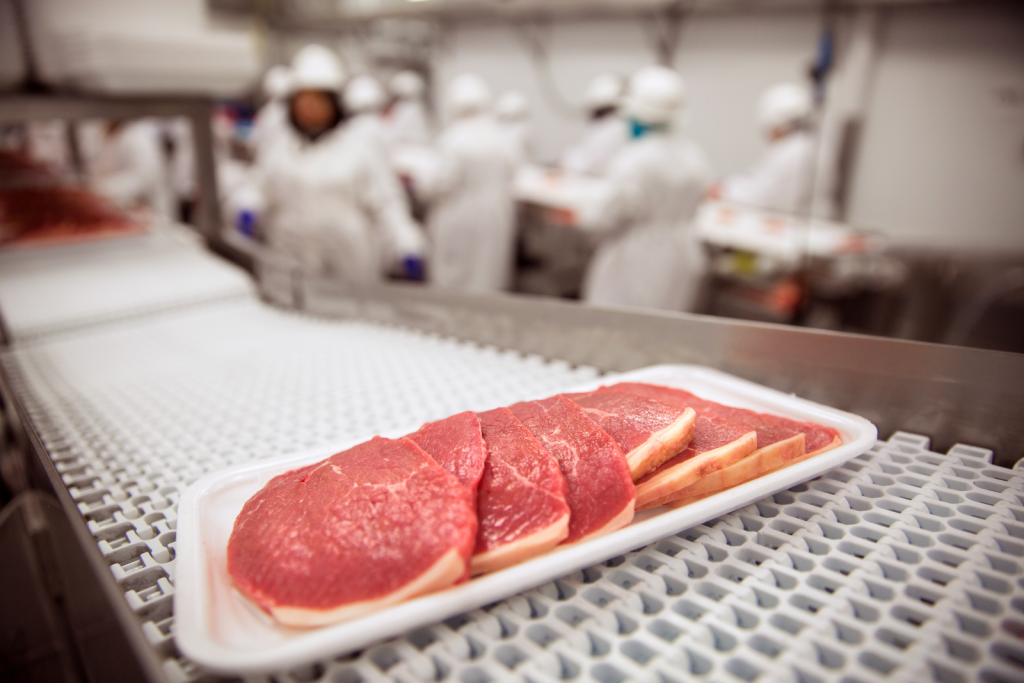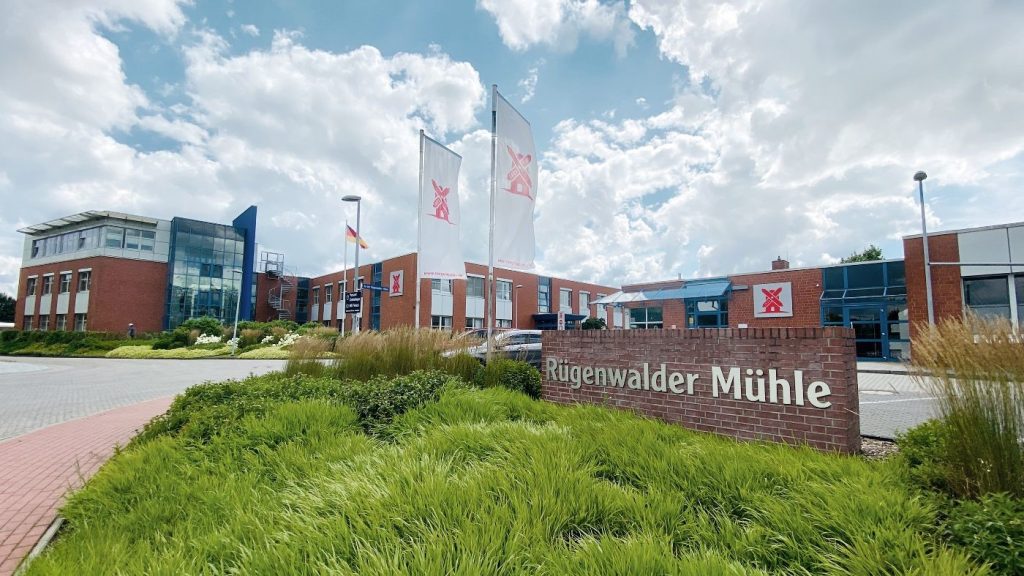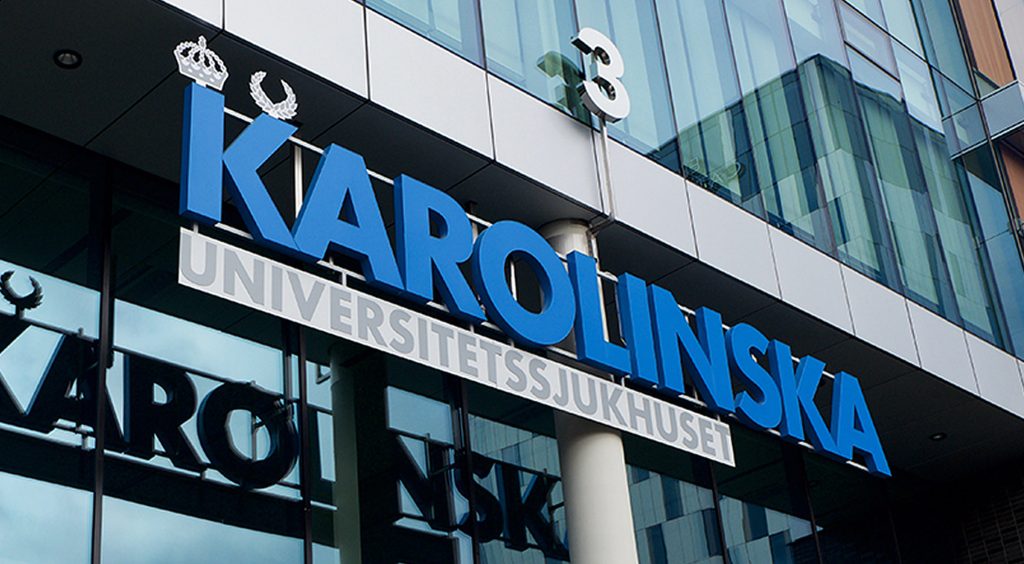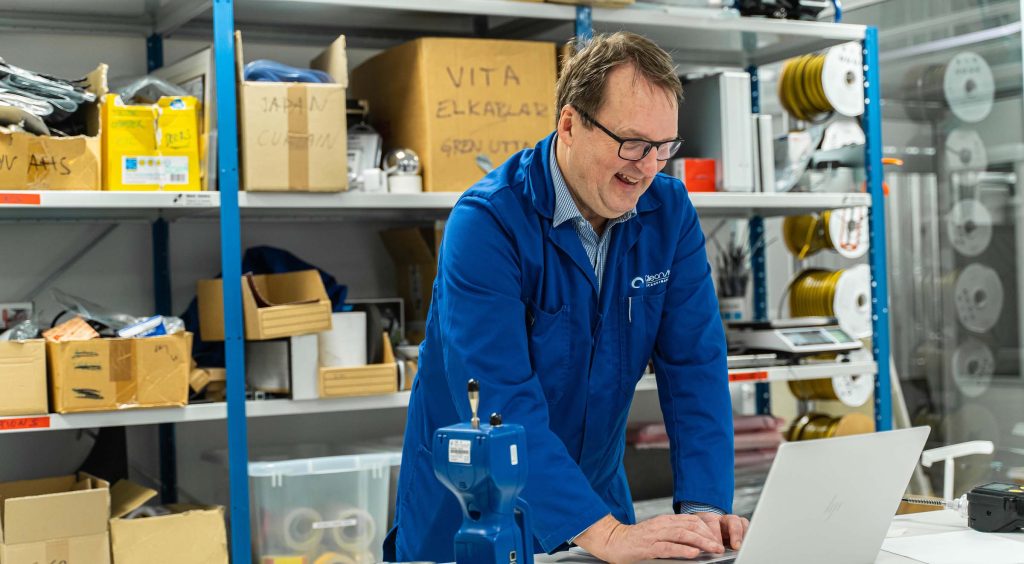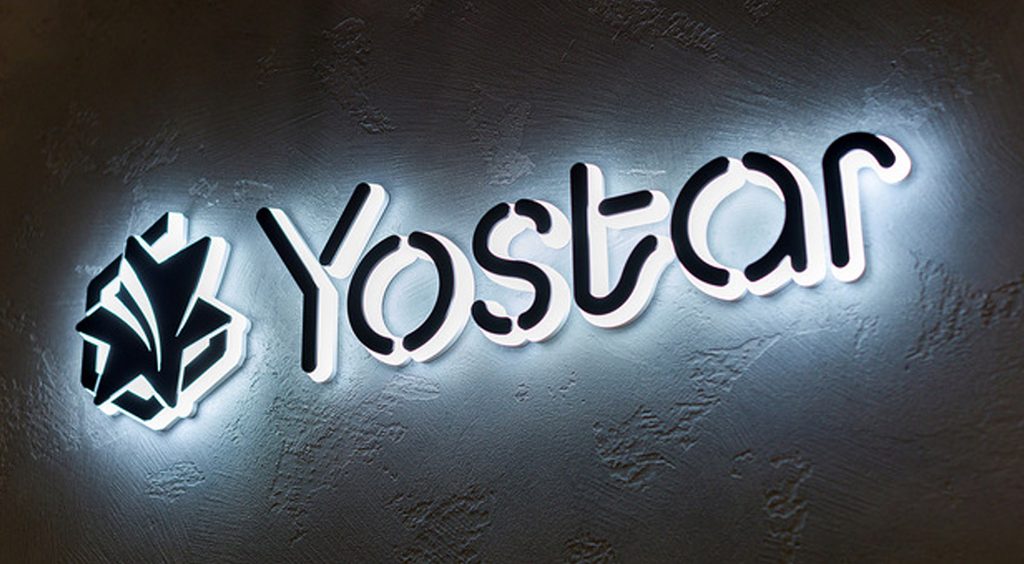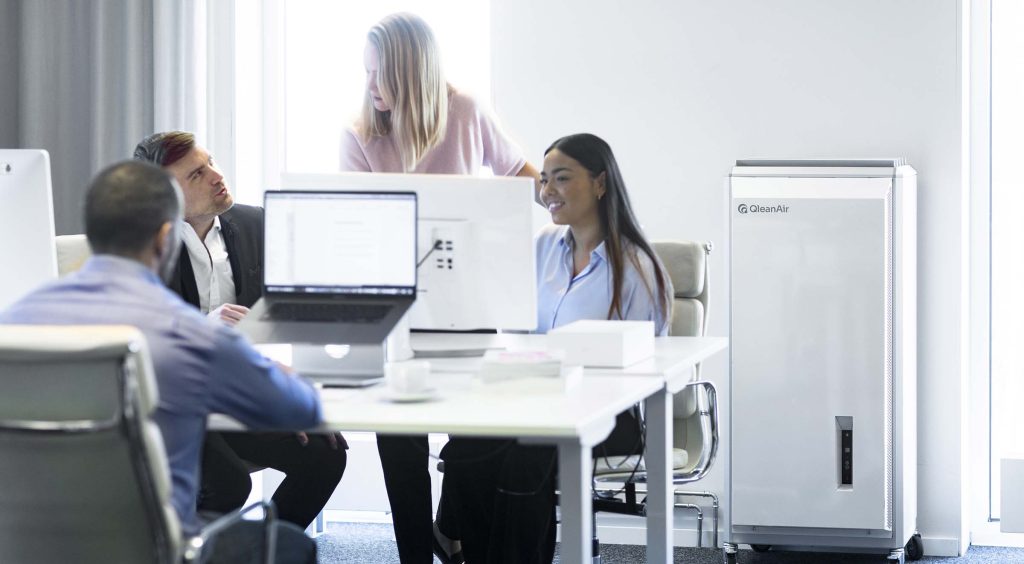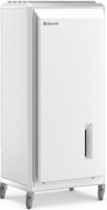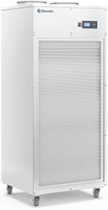Rozwiązania / Obszary problematyczne
Wirusy i bakterie
Wyzwania
Wirusy i bakterie mogą rozprzestrzeniać się drogą kropelkową, przenosząc się wraz kropelkami wydzielanymi podczas kichania lub kaszlu, a także drogą transmisji powietrznej podczas oddychania, mówienia czy śpiewania. Kropelki mają stosunkowo duże rozmiary, dlatego osiadają w odległości 1–2 metrów od osoby, która je wydziela. Przed zakażeniem tą drogą można chronić się stosując środki ochronne, takie jak maseczki. Natomiast wirusy i bakterie rozprzestrzeniające się drogą powietrzną mogą pozostawać w powietrzu przez wiele godzin, środki ochrony nie zawsze stanowią skuteczne zabezpieczenie. Początkowo sądzono, że koronawirus SARS-CoV-2 jest przenoszony głównie przez bezpośredni kontakt i drogą kropelkową. Obecnie wiemy, że w pewnym stopniu rozprzestrzenia się na drodze transmisji powietrznej, szczególnie w pomieszczeniach. Bakterie, takie jak listeria, salmonella, campylobacter i e coli, są przenoszone głównie przez poprzez kontakt z powierzchniami, na których występują, ale mogą również przemieszczać się drogą powietrzną.

Rozwiązania
Już od dłuższego czasu pomagamy jednostce kontroli zakażań w szpitalu Danderyds w Szwecji, dostarczając rozwiązania w zakresie oczyszczania powietrza przeznaczone do zabudowy. Podczas pandemii COVID-19 wyposażyliśmy nasze wolnostojące oczyszczacze powietrza FS 70 w certyfikowane filtry HEPA 14, aby chronić personel oddziału intensywnej terapii w Szpitalu Uniwersyteckim Karolinska. W ścisłej współpracy z tą placówką opracowaliśmy również nowy produkt o mniejszych rozmiarach przeznaczony do małych pomieszczeń – model FS 30 HEPA. W testach niezależnych testach zewnętrznych obu produktów wydajność systemu filtrowania kształtowała się na poziomie co najmniej 99,995 procent. Rozwiązania te pomagają radykalnie obniżyć stężenie wirusów i bakterii w powietrzu oraz zmniejszyć ryzyko infekcji. Dostarczając wolnostojące oczyszczacze powietrza, pomagamy również zapewnić lepszą jakość powietrza wielu producentom żywności, na przykład w branży piekarniczej, serowarskiej i produkcji przekąsek. Model FS 70 FG HEPA to jeden z produktów opracowanych specjalnie dla branży produkcji żywności i napojów.


